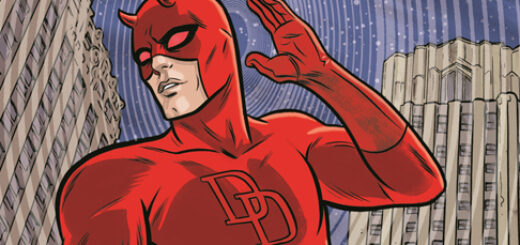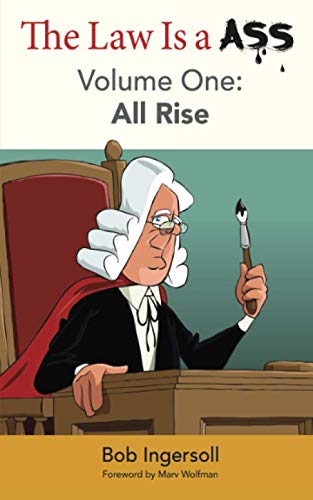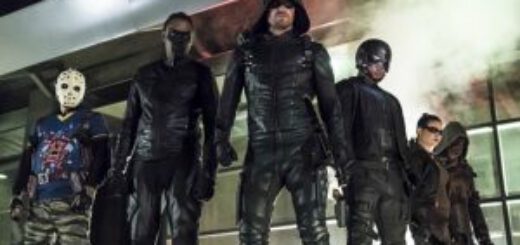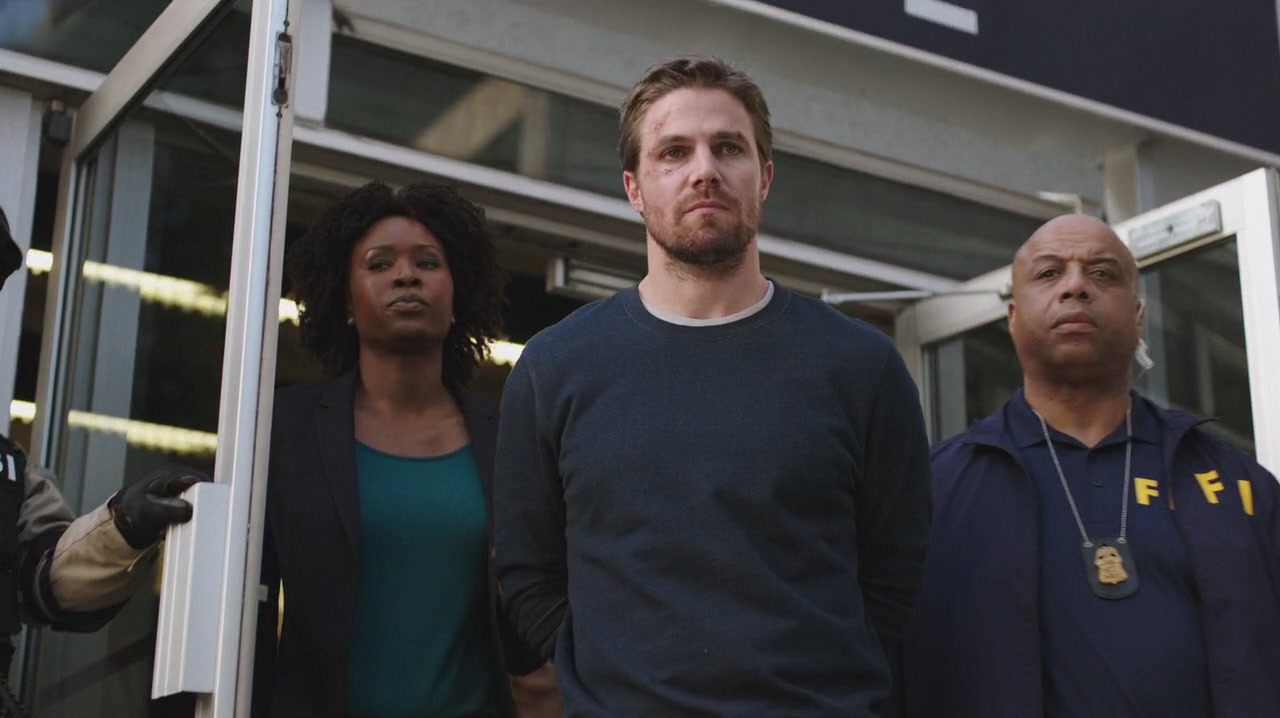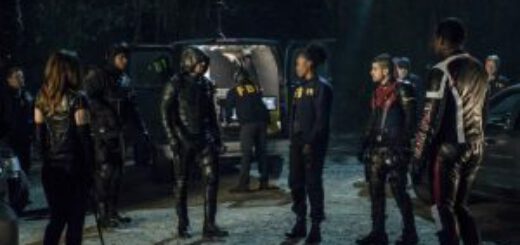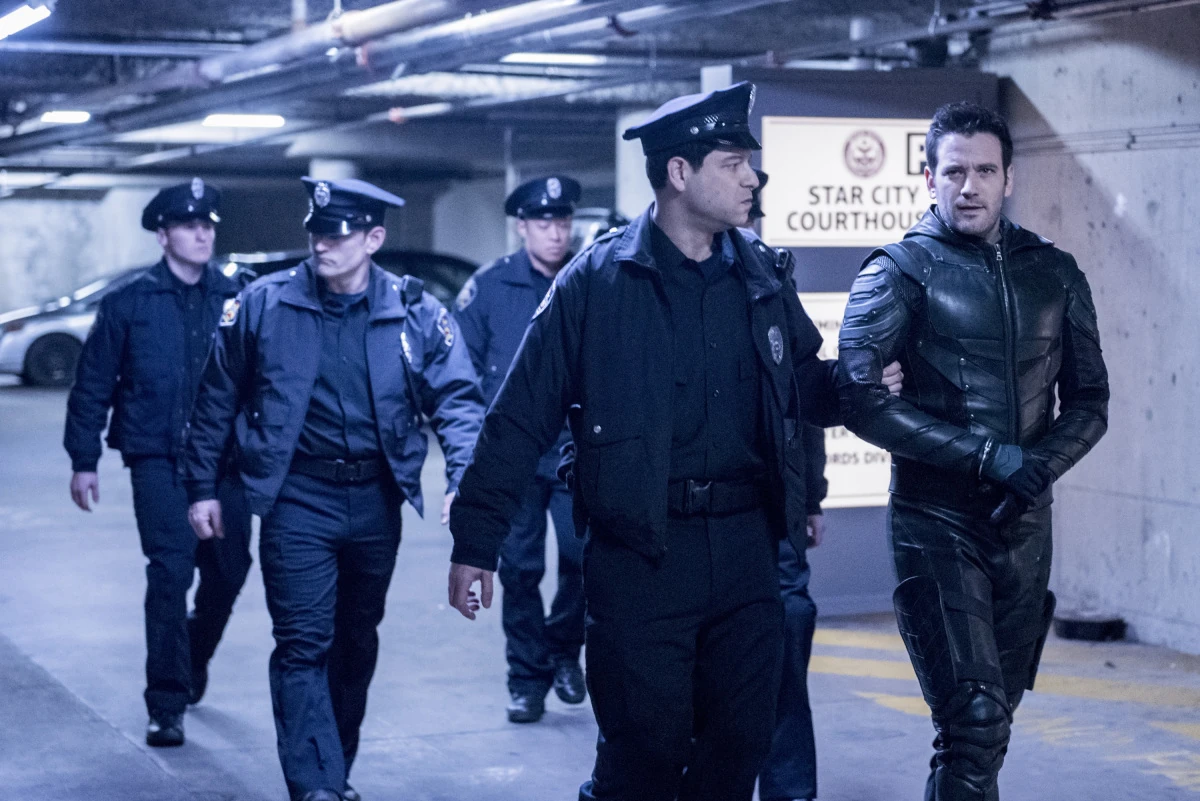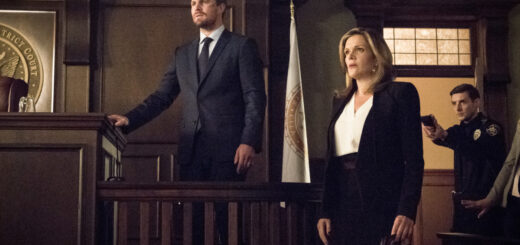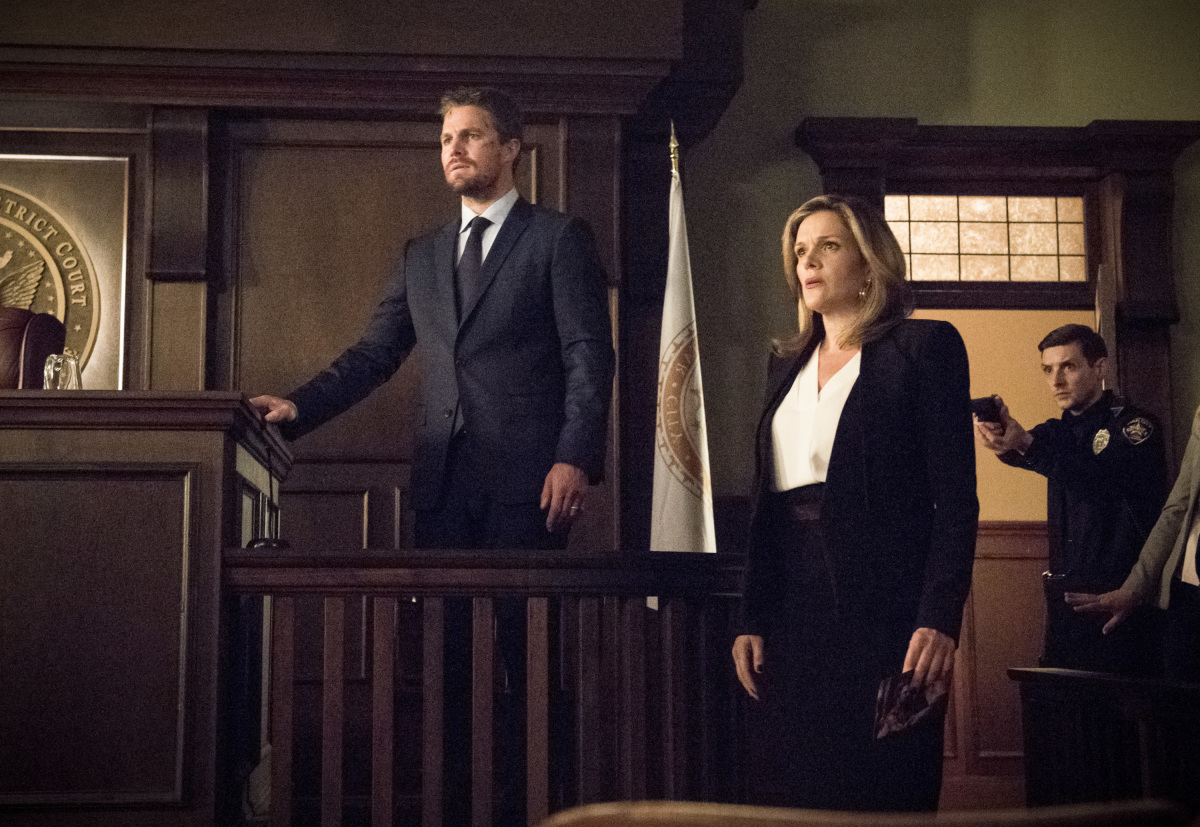In the immortal words of Dorothy Parker… Err, maybe we shouldn’t go there.
Sorry it’s been a while. September until May constitutes a while, cause it’s a bit longer than a little while. Between out of town comic book conventions, trips to Chicago, family vacations, trips to Chicago, holidays, even more trips to Chicago – including a lengthy one to help my daughter when, first, she pulled a rib muscle and couldn’t lift her two-year-old and another lengthy one when she gave birth of my grandson – and various and sundry other sundries that I can’t talk about quite yet; I just haven’t had much time to write a column.
But I’m back with a vengeance. The vengeance being what the fine and patient folks at ComicMix will demand if I go this long between columns again. So, as the Prufrock is in the puttin’ words together; “let us go then, you and I…”
…And then they throw their guns at him.
Seriously, how many times did we see that scene play out in the Adventures of Superman TV show with George Reeves? Superman confronts some two-bit thugs – the show’s budget didn’t allow them to spend more than twenty-five cents for extras – the thugs would shoot at Superman, and the bullets would bounce off him harmlessly. Then, after the bad guys emptied their guns at Superman without effect, they’d throw their guns at him believing guns thrown at maybe 50 mph will do Superman harm when projectiles moving at 1,067 feet per second had already bounced like their last rent check.
An oft-repeated scenario which prompted one Ron Hartley to tweet me with a question: under this fact pattern, would the criminals be guilty of a crime? Not some silly low-grade crime like illegally discharging a firearm or an excessive noise violation, are they guilty of a major crime?
To which I answer, it depends. No, not because lawyers are constitutionally incapable of answering a yes or no question “yes” or “no.” I answer it depends, because the answer actually does depend on a few variables.
First, let’s zero in on of what crime might the criminals be guilty? Not murder. Superman didn’t die. But by firing their guns the criminals did commit an act which, if successful, would have resulted in killing Superman. That’s attempted murder. Then there’s some type of assault. What type? As a bar-be-cue chef who’s fond of Shakespeare might say, “Ah, there’s the rub.”
I turn to the Model Penal Code, a document written by the American Law Institute in an effort to update and unify the penal laws throughout the country. Toward that end, the MPC contains model statutes which define crimes and penalties. Since it’s first publication in 1962, more than half the states have modified their criminal codes to incorporate language of the MPC in their penal codes. So the MPC is about as close to a universal criminal law of the land as we’re likely to get.
The MPC defines aggravated assault as causing, or attempting to cause bodily harm to another with a deadly weapon. Note that attempting to cause part, that means the criminal doesn’t have to cause actual injury, the criminal can merely attempt to cause injury with a deadly weapon. So if a criminal shoots at you and misses, you’re lucky. The criminal, not so much. The criminal attempted to cause physical injury with a deadly weapon, and so is guilty of aggravated assault, even though you’re peachier than a peach cobbler washed down with peach schnapps.
To get back to our question, if criminals shoot at Superman and the bullets bounce off him, the criminals still attempted to cause bodily injury or death. So they would be guilty of aggravated assault and attempted murder. Right?
To which I say, not so fast there, Speedy Gonzalez. Like a man who leapt into a brick wall, you’re jumping to contusions.
There’s one additional matter that must be considered. We must also answer the question did the criminals know the bullets would bounce off of Superman when they shot at him?
In the law, an attempt crime – such as the attempted murders or aggravated assaults we’ve been talking about – is what the law considers a specific intent crime. In order to be guilty of an attempt, the criminal must have specifically intended to commit the crime he or she was attempting. In our Superman question, to be guilty of either attempt crime, the criminals must have either intended to kill Superman or to cause him physical harm when they shot at him.
Now we know that killing Superman with bullets is impossible, they bounce off him like raindrops on roses. (Don’t complicate the matter with hypothetical Kryptonite or magic bullets, we’re not talking about the Kennedy assassination.) So killing Superman with bullets is impossible. The law recognizes the possibility of an impossibility defense to attempt crimes. If a criminal is attempting to commit a crime that is impossible, then the criminal could not have intended a specific result, because that result is impossible.
So there you are, if the criminals were attempting the impossible crime of shooting Superman, then they can’t be guilty of attempted murder or aggravated assault. Right?
Of course, not right. Not only can’t the law can’t answer a yes or no questions “yes” or “no,” it can’t even answer it with a definite maybe. It’s got to throw in a few depends along with a perhaps or two to muddy up the maybe.
Let’s look at a classic example law schools use to explain this conundrum. A man – the criminal – shoots another man – the victim. But what if the victim was dead at the time the criminal shot him? Obviously, it’s impossible to kill a man who’s already dead. So the criminal can’t be guilty of murder. But can the criminal be guilty of attempted murder, or does the impossibility defense come into play?
The answer to that question depends on what the criminal knew at the time he shot the dead man. If the criminal knew the man was dead, then the criminal knew killing the victim was impossible. The criminal couldn’t have specifically intended to kill the victim, so the impossibility defense would apply, because the impossibility negated the defendant’s specific intent.
But what if the defendant didn’t know the victim was already dead? What if the criminal believed the victim was alive when he shot and did intend to kill the victim? Then the impossibility defense doesn’t apply.
The law reasons it out like this, if the criminal attempts an impossible crime but doesn’t know it’s impossible, then the defendant would have been successful in the crime, had the facts been as the defendant believed them to be. So, because the defendant intended to cause a specific result, the defendant is still guilty of the attempt, even though the crime attempted turned out to be impossible. If our hypothetical would-be murdered cum corpse abuser didn’t know his intended victim was already dead, he would be guilty of attempted murder.
Or, to get back to the original question, if the crooks shot at Superman knowing the bullets would bounce off of him, they might be guilty of littering for spreading spent bullets all over the place, but they wouldn’t be guilty of attempted murder or aggravated assault. They knew murder and assault was impossible so didn’t specifically intend either. If, on the other hand, the mugs didn’t know the bullets would bounce off Superman and believed the bullets either kill or injure Superman, then they’re not only stupid, they would also be guilty of attempted murder and aggravated assault.
Is it any wonder that I retired from the law? After almost three decades in that morass of maybes and trying to make sense of laws that have more depends in them than a nursing home, my hair turned whiter than snow on the Night King’s butt.
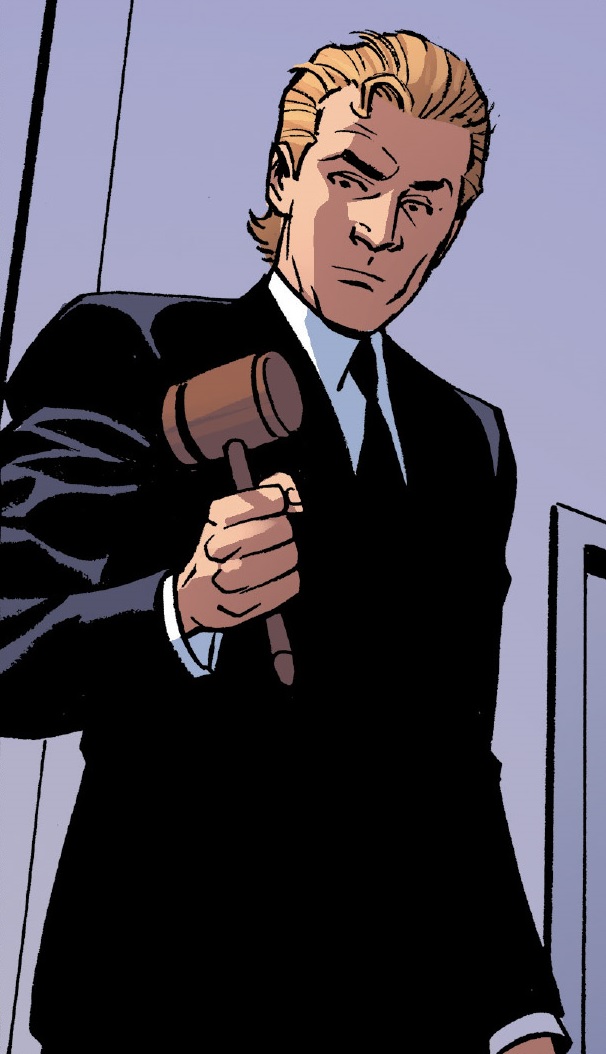 How do you prove that you’re you?
How do you prove that you’re you?
